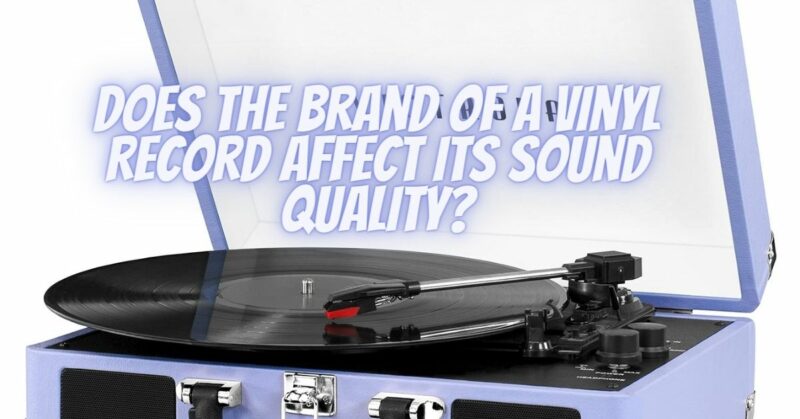Vinyl records have experienced a remarkable resurgence in recent years, captivating music enthusiasts with their analog warmth and tactile charm. When building a vinyl collection, many collectors wonder whether the brand of a vinyl record significantly impacts its sound quality. In this article, we will explore the role of record brands in the vinyl experience and whether they have a substantial influence on sound quality.
1. Pressing Quality Matters:
One of the most crucial factors influencing the sound quality of a vinyl record is the pressing quality. The pressing plant and the production process have a more significant impact on sound quality than the record label or brand. High-quality pressing plants use precision equipment and techniques to create records with minimal defects, which can result in superior sound reproduction.
2. Mastering and Mastering Engineer:
The sound quality of a vinyl record is heavily influenced by the mastering process and the expertise of the mastering engineer. The same album, when mastered differently, can sound vastly different on vinyl. The choices made during mastering, such as equalization, compression, and dynamic range adjustments, significantly affect the sound.
3. Vinyl Material and Weight:
The quality of the vinyl material itself plays a role in sound quality. Records pressed with high-quality virgin vinyl tend to have less surface noise and better sound quality compared to those made from recycled vinyl. Additionally, the weight of the vinyl record can impact its sound. Heavier records often have improved bass response and reduced vibrations.
4. Vinyl Record Condition:
The condition of the vinyl record, including surface cleanliness and absence of scratches or warping, is paramount to sound quality. Well-maintained records will produce a cleaner and more enjoyable listening experience regardless of the brand.
5. Brand Reputation and Collector’s Value:
While the brand of a vinyl record may not directly influence its sound quality, it can impact its collector’s value and desirability. Some collectors may seek out records from specific brands or labels known for their commitment to quality or for releasing rare and collectible albums.
6. Reissues and Remasters:
Reissued vinyl records, often marked with specific brands or labels, can provide high-quality sound. These reissues are often remastered from the original analog tapes, and great care is taken to ensure the sound fidelity is preserved or enhanced.
7. Personal Listening Preferences:
Ultimately, the perception of sound quality is subjective and varies from person to person. What one listener considers excellent sound quality may differ from another’s preferences. Some collectors may prefer the unique characteristics of vintage records, while others seek the precision and clarity of modern audiophile pressings.
Conclusion:
In the world of vinyl records, the brand or label is not the primary determinant of sound quality. Instead, factors like pressing quality, mastering, vinyl material, and record condition play more substantial roles in the listening experience. While some brands may have a reputation for quality or collectibility, it’s essential for vinyl enthusiasts to consider multiple factors when evaluating the sound quality of a record. Ultimately, personal listening preferences and the condition of the record itself will have a more significant impact on your enjoyment of vinyl records than the brand they bear.


